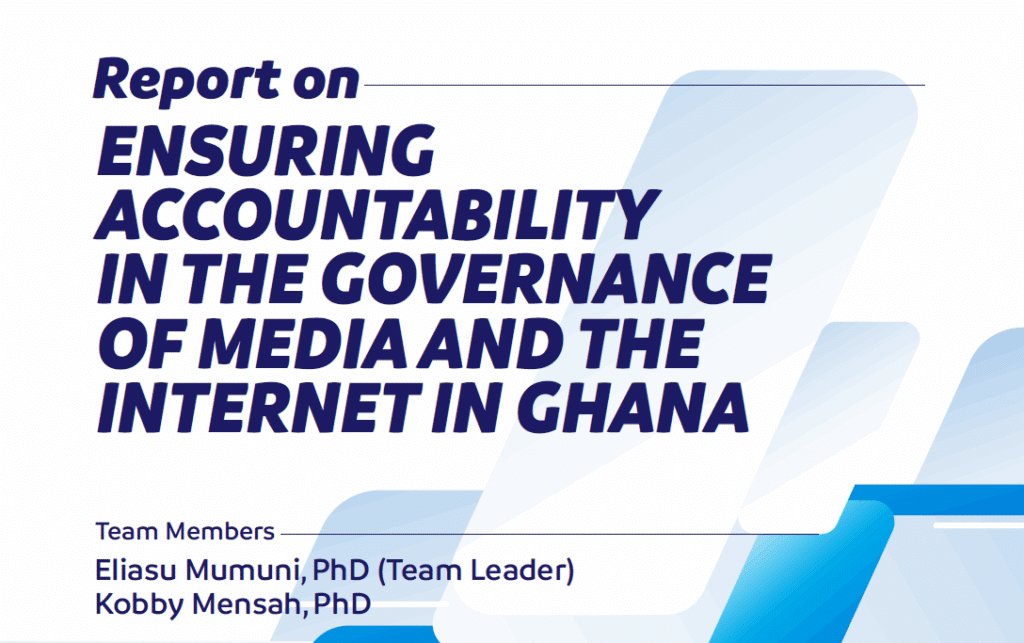What are the biggest problems that the youth of Africa face?
Our WAYLead fellows share their thoughts!
Mohammed Kerkulah:
The biggest problem facing Africa’s youth is unemployment. The youth constitutes the highest population in Africa, and they are the most vulnerable, less privileged, and unattended to in society. Many young people have become victims of negativity and unproductiveness because they are neither schooling nor engaging in economic activities. There is a common saying: “an idle mind is the devil’s workshop.” This is the reality behind many young people getting into the streets, and involving themselves in robbery, drug/substance abuse, violence etc. The lack of adequate youth employment has made them dangerous to society, leaving them with no alternative but to engage in terrible acts that will give them money to support their bad habits. In order to eradicate and/or reduce the high unemployment rate among the youth, the government, CSOs, NGOs, youth organizations etc. must help get the youth engaged in profitable activities such as educational programs, vocational and entrepreneurial skill training to make them self-reliant. The opportunity WAYLead is providing, to positively impact and educate the youth in leadership, would advance growth as participants would give back to their respective communities. There is a need to invest in youth empowerment programs and accelerate awareness to create the enabling environment for employment.
Michael Amuah:
The youth constitute a greater part of the population in most African countries. These young people live in a rapidly changing world, faced with many pressures. The biggest problem among Africa’s youth, in my opinion, is the lack of the development of one’s mind. Young people, on the whole, experience disquieting irritations, perplexities and adjustment problems as a result of rapid social change. There is an increase in social vices among the youth leading to appalling incidences. I believe in order for such social vices and corrupt acts to be curbed, one’s mind must be developed. Bob Marley once said “None but ourselves can free our minds” The current socio-economic conditions in Africa block the progress of the African youth. Early marriages complicate matters for the youth. Ignorance, illiteracy, and insufficient knowledge about planned parenthood have resulted in an increase early childbearing. Once our minds are well developed, our way of life would change for the better.
Emmanuella Ametsi:
I believe the biggest problem facing Africa’s youth is our educational system, coupled with the lack of good employment opportunities that the educational curriculum prepares the graduates for. Africa’s youth find themselves stuck in a cycle of completing school and sitting at home without jobs mainly because our educational systems mainly prepare us for non-existent white collar jobs. The very few enterprising youth who venture into entrepreneurship also find themselves lacking support in training and funding.
Peter Dadzie:
The main issue Africa’s youth faces is inadequate training with the relevant skill sets needed in the twenty first century to take up opportunities in the agricultural, industrial and the service sectors.
Dawda Cham:
Undoubtedly, the biggest problem facing Africa’s youth is unemployment but this has a root cause. This problem is not only created by bad governance in Africa but it is also associated with a concept that young Africans have. Young people must dissociate with the mindset of the West being our only solution but must start believing that they can make it here in Africa. How? It is easy! Let young people start taking up responsibilities and be the designers of their own destiny. Let them take ownership of what belongs to them and turn every challenge they come across into opportunities.
Bashir Koroma:
Lack of employment opportunities has been ranked top of a list of challenges faced by Africa’s youth today.
The biggest challenge the youth face is that they’re often incapable of finding a productive place within society – either within the mainstream education system or satisfactory employment.
The list below also highlights some other challenges faced by youth:
- Lack of employment opportunities
- Failure to succeed in education system
- Family problems
- Substance abuse
- Pressures of materialism
- Lack of affordable housing
- Negative stereotyping
- Pressures of 24-hour social networking
- Crime
Suhuyini Karmil:
The biggest problem facing Africa’s youth is the lack of opportunities to run for political positions. Young people’s dreams of actually influencing policies are stifled because of the many restrictions placed on us by various factors including our very own constitutions. The effects of this can be seen in the kind of policies made by older politicians which don’t favor the youth, but rather the old and elite. Everyone including us young people, need to believe that we can lead and transform Africa.
Sandra Alex-Egboro:
There are a myriad of challenges facing Africa’s youth, some of which are poverty, poor education, poor health practices, social vices, gender biases, lack of social/civic responsibility etc., However, I consider youth unemployment to be the prevailing problem. This is because the overreaching effect youth unemployment has on a nation, and on Africa, cuts across all other areas highlighted above. Unemployment has led to youth exclusion from governance, decision making and development process, and this impacts negatively on the desire for self-relevance and self-realization.
Prosper Anatsui:
Although the African continent can boast of contributing over 23% of the global youth, the continent still has countries languishing in poverty and persistent turmoil. This percentage of vibrant young people face tons of problems, number one and two being unemployment and exclusion in the decision making process. The issue of unemployment does not only leave the African youth in poverty but also impels the young person into perpetuating social vices such as robbery. Poverty also drives the youth into developing chronic mental health issues and other health related complications. In addition, the disregard of youth at the decision making level makes them unconnected in the development process of their beloved country.
Anita Amoah:
Young people constitute a rapid growth proportion of the population of most countries in Africa. Economic crises have brought many challenges to the youth and I believe unemployment is the biggest problem facing Africa’s youth. Young people in Africa have developed dependency syndrome on parents, politicians and donor aid, stalling their active and meaningful participation in societal transformation. Some of the causes of youth unemployment are: skills mismatch, inadequate entrepreneurial skills and a gaping digital divide. There is the need for SMART—(Specific, Measurable, Attainable, Realistic and Timely) innovations to close this unemployment gap.
Angela Osei:
Africa’s youth’s biggest problem is their exclusion in the decision making processes that affect their lives. Africa has a very young population and yet major decisions concerning development in the area of employment, sanitation, education etc. are made by the older generation who may not be alive in the next decade to experience the effects of the decisions they make. As such, it is imperative that the youth are actively engaged in every decision concerning the country. Our leaders must guide and trust us to make the decisions that affect our lives, to make the world a better place for all.
Emmanuel Nyarko:
I consider poverty to be a significant problem facing the ordinary African youth. I speak from my own experience. I have seen that many young people remain jobless in their homes, in the first 2-4 years after tertiary education because the employment rate in Africa is very low. A few are able to get jobs and even so, earn low income so they find it hard to save part of their earnings for a secured future.
Justice Alor:
Inadequate avenues (centers) and funding for developing and supporting entrepreneurial skills are the biggest problems facing Africa’s youth. Most African youth have remained unemployed and this has made life unbearable for most of them. On the other hand, the few who attain entrepreneurial skills, receive no financial assistance to practice what they have been trained for.
Kweiki Abloso:
Africa’s biggest problem concerning her youth is the lack of integrity. It is my belief that the fruit of corruption was first a seed of offenses that did not receive sanction. A child may believe that he may be able to ‘get away’ with misdemeanor. These same people grow to occupy seats of power and fail to exercise discipline and diligence, leading to loss of government revenue, resulting in poor standards of living. This vicious cycle ends with a different generation of Africa’s youth.
Sandra Dziwornu:
I believe the biggest problem facing Africa’s youth is poverty. And this identified problem has had a bearing and has translated into other areas of living like access to health, education, and other opportunities. This has adversely affected the continent because its youthful population does not have access to resources to grow to become assets to their respective countries and to the continent as a whole.
Yahya Seidu:
I believe Africa, a continent with majority of its population being youth, should not struggle to address basic challenges in life as the youth are the hope and backbone of every economy. The biggest problem facing the youth is the failure of successive governments to invest in the youth. Most government policies ranging from education to leadership, to job creation are not geared towards empowering the youth to tackle most of the problems in our societies.
Taiwo Olawehinmi:
I think that the biggest problem facing African youth is the dearth of competent political leaders as role models, coupled with a stifling environment for the rise of young political leaders. Although there has been a lot of talk and written agreements to enable the youth to participate actively in governance through the ‘Not Too Young To Run Bill’, the general populace is still biased towards older people. Young people have not yet won the trust of the populace, to gain massive electoral support during elections. This is a vital aspect we must work on as young people. We definitely need to practice more diplomacy, lobbying, negotiation and result-oriented approaches, so that we get to truly take our seat at the table.
Cece Muna Nimely:
Unemployment is one of the biggest problems Africa’s youth faces. Sadly, it leads to unworthy personal and social costs, which include but are not limited to severe financial hardship and poverty, debt, homelessness, family tensions and breakdown, boredom, alienation, shame and stigma, increased social isolation, crime, erosion of confidence and self-esteem, degenerating of work skills and ill-health. Majority of unemployed young people experience a decline in their living standards. This also leads to a decline in spending power and the rise of debt problems as well.
Ndey Fatou Nying:
The challenges facing Africa’s youth are the high rate of unemployment and the limited opportunities available to the youth. These issues have raised great concern and have often resulted social vices as robbery, theft, drug abuse. These issues have retarded the growth of youth in politics and industries.
Another problem is the poor Educational System. The limited spaces in universities and enrollment in some African countries affects the youth and hinders their growth. Most African governments have been unable to remedy issue.
Marian Sesay:
Personally, I think one of the biggest challenges faced by the youth of Africa is lack of education. The rate of education among Africa’s youth leaves much to be desired. The willingness to attain higher education is every so often absent. I presume this is because, many of them do not benefit from the basic or secondary education they acquire. This however, cannot alter the fact that education is key and it’s a step towards being free from the shackles of poverty and dependency.
Another problem is the identification of self-worth. The youth of Africa have a problem identifying who they are and what they are capable of doing. Once the youth are trained to identify their strengths and weaknesses, they can major in the strengths and handle the weaknesses to develop themselves and effect internal and external change.
For more info and updates on the WAYLead program, follow us on YouTube (CDD-Ghana), Twitter (@CDDGha), Facebook (CDD-Ghana), Instagram (@cddghana) and check out our website (https://cddgh.org).















